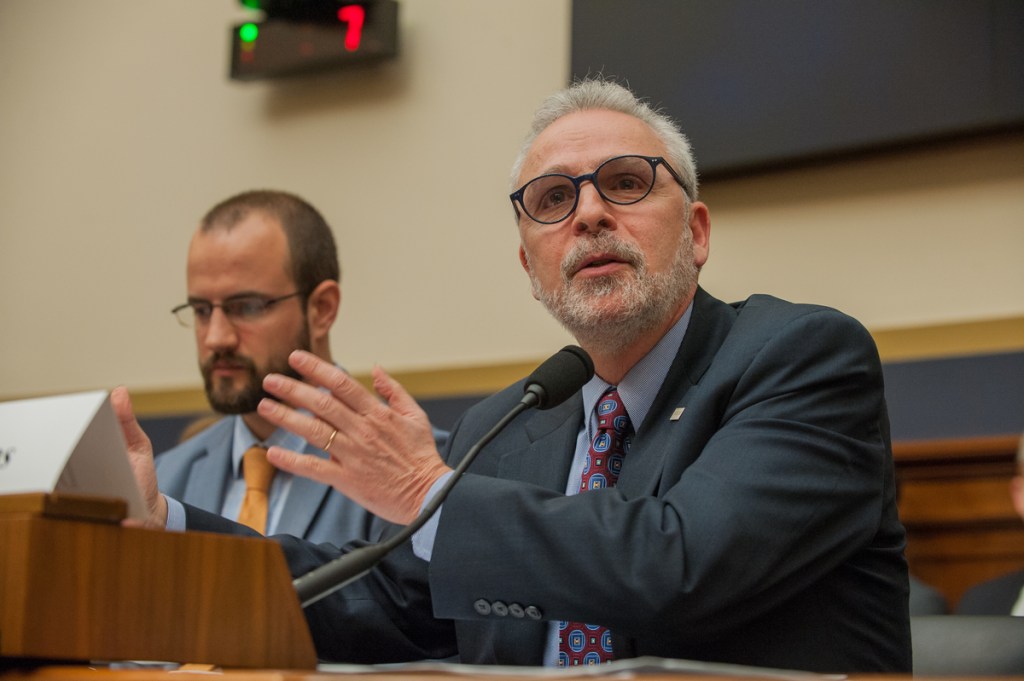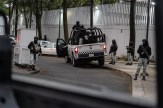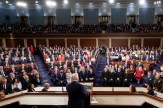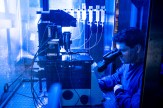Northeastern professor testifies at House hearing on countering terrorism financing

The global threat of trade-based money laundering is serious, but effective responses are within reach, Northeastern University professor Nikos Passas, an international financial crime expert, said at a House Financial Services Committee hearing on Wednesday morning in Washington.
Passas testified at a hearing held by the committee’s task force charged with investigating ways to cut off terrorism financing. The hearing specifically focused on the role of trade-based money laundering, which is defined as the process of disguising the proceeds of crime and moving value through the use of trade transactions that attempt to legitimize their illicit origins.
The hearing comes days after the U.S. Drug Enforcement Agency announced that, in collaboration with European authorities, the agency has uncovered a massive drug and money laundering scheme, the proceeds of which are being used to purchase weapons for the Lebanon-based militant group Hezbollah for its activities in Syria. On Tuesday, the European Commission also announced an action plan to strengthen the fight against terrorist financing.
Passas, professor of criminology and criminal justice and co-director of the Institute for Security and Public Policy at Northeastern, has studied illicit financial and trade flows, including money laundering, for more than 25 years. Passas was joined on the expert panel by John Cassara, former U.S. intelligence officer and treasury special agent; Louis Bock, former senior special agent with the U.S. Customs and Border Protection; and Farley Mesko, co-founder and chief executive officer of Sayari Analytics, a threat finance discovery firm.

Northeastern professor Nikos Passas, right, greets Rep. Steven Lynch, D-Mass., at the House Financial Services Committee hearing. Photo by Max Taylor
In his remarks, Passas noted that, despite substantial efforts to block money laundering and counter trade finance, not enough attention is paid to trade, which he said “constitutes the biggest security and crime liability, a black hole undermining the entire control framework.” Trade can hide illegal shipments and illicit finance, he said, adding that billons of dirty funds could still be moved undetected even if all current rules were perfectly enforced throughout the world. Multiple terrorist groups, he said, including the Islamic State and al-Qaida, are involved in these types of activities.
Later at the hearing, during a lengthy Q&A between committee members and panelists, Passas responded to a question about which forms of trade-based money laundering are terrorists most commonly using. He pointed to cargo theft, counterfeiting, and misinvoicing—which refers to misdeclaring the destination, value, origin, final use or quantity of a product.
Trade constitutes the biggest security and crime liability, a black hole undermining the entire control framework.
— Northeastern professor Nikos Passas
Passas noted that a range of data on the movement of commodities—from shipping manifests to import and export declarations—can be systematically collected. He suggested that FinCEN, a bureau of the U.S. Department of the Treasury, would be an ideal place where all government data are gathered and analyzed. He also recommended the assembly of private and open source data through a trusted third party, such as a university, that can securely store and analyze these data in a consolidated way, collaborate with FinCEN to identify irregularities, generate typologies and red flags, map criminal networks, issue guidance, and produce evidence-based investigative clues.
Banks and other relevant private sector entities, he said, must also be provided with the necessary guidance on the types of clues and red flags they can share with authorities when found.
“Instead of shooting in the dark, we can shed light on black markets and go after well-defined targets,” he told the task force members. “Official records, networks to produce new data, technology, analytical capacity, experience, and willingness to collaborate are all there. I urge you to turn the switch.”





